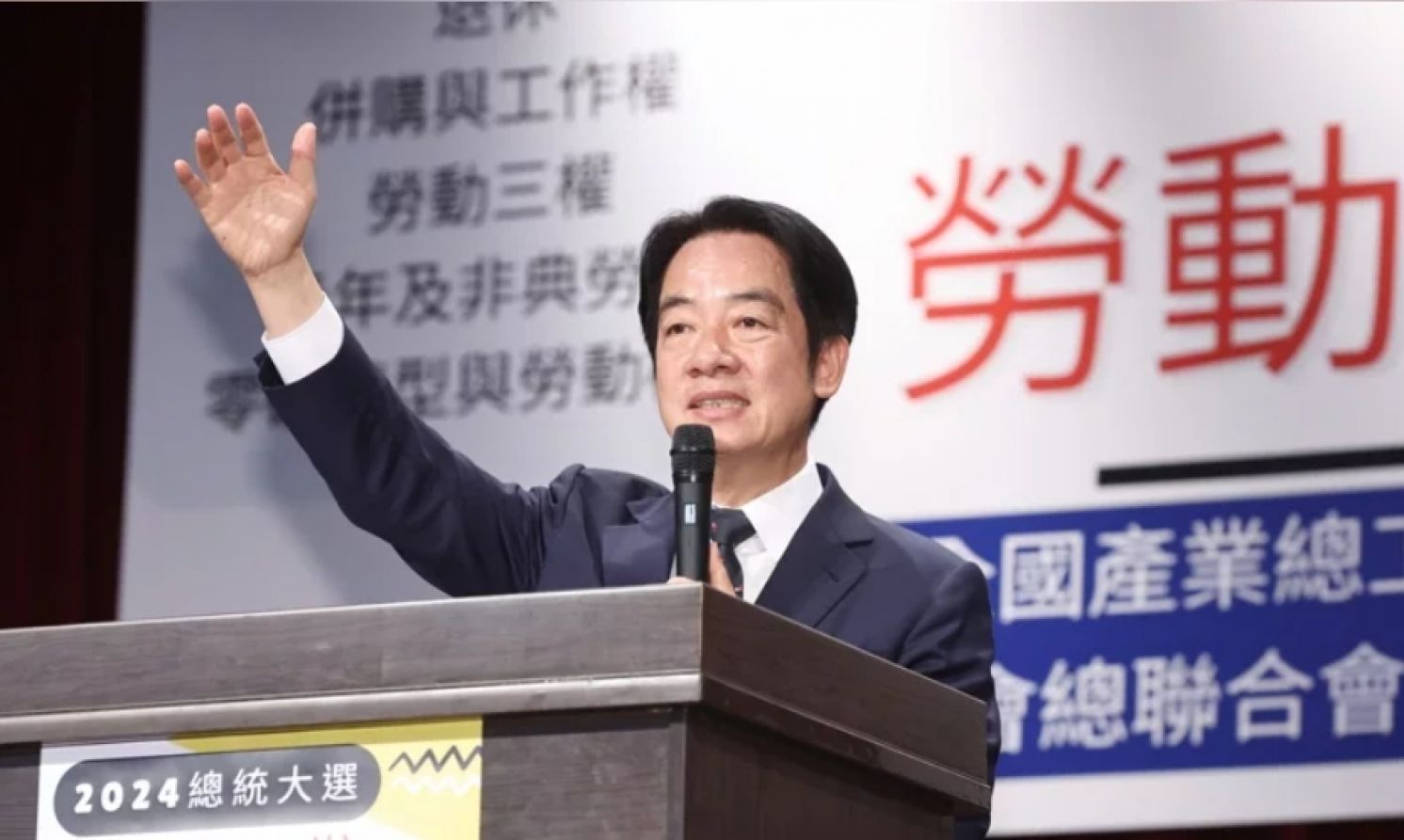
DPP Stance on Constitution Reflects Pro-Independence Sentiments
United Daily News Commentary, December 2, 2023
The Democratic Progressive Party (DPP), led by Chairman and presidential candidate William Lai, has finally stated that it "insists on handling cross-strait affairs in accordance with the ''Constitution of the Republic of China” and the “Act Governing Relations between the Peoples of the Taiwan Area and the Mainland Area.” This is the first time such a statement has been made since Mr. Lai took office as DPP chairman earlier this year. It remains to be seen whether this signifies a shift towards a more centrist stance on cross-strait issues under Mr. Lai's leadership.
Handling cross-strait affairs in accordance with the Constitution and the Act Governing Cross-Strait Relations is a position mentioned in President Tsai Ing-wen’s 2016 and 2020 inaugural addresses. As the Constitution still maintains the “One China” framework, the cross-strait portion of President Tsai's inaugural speech has been considered an “unfinished worksheet” by mainland China. Four years later, the situation remains unchanged, contributing to the ongoing frosty relations between the two sides of the Taiwan Strait. Nevertheless, President Tsai Ing-wen has not yet crossed the bottom line of de jure Taiwan independence, adhering to the Constitution. Her clear and definite stance on the Constitution is well known.
In 2011, when Tsai represented the DPP in the 2012 presidential election, her visit to the United States for an "interview" with American officials really shocked her. Before concluding her Washington trip, an anonymous foreign media cited U.S. government officials as expressing doubts about whether she could maintain peace and stability across the Taiwan Strait. Those doubts delivered a setback for her. In the end, Tsai lost the election.
It wasn't until 2015 that Tsai Ing-wen, once again in the role of a presidential candidate, revisited the United States. This time, the United States gave her the "green light." A crucial moment during this visit was Tsai's speech at a think tank where she outlined her commitment to promoting the peaceful and stable development of cross-strait relations within the existing R.O.C. constitutional order.
Since Mr. Lai announced his candidacy for the presidency, he has consistently, yet half-heartedly, emphasized the "Four Musts” in cross-strait relations, aligning with President Tsai’s course. The difference lies in Mr. Lai's stance on the name of the country. While only advocating the appellation of the R.O.C. in constitutional terms, he never commits to handling cross-strait relations in accordance with the R.O.C. Constitution. He is really playing on the sidelines of Taiwan independence.
This is one of the major reasons behind American skepticism towards Mr. Lai. If Tsai’s stance on cross-strait relations could be seen as somewhat predictable and consistent, Mr. Lai, who is hesitant even to mention the Constitution, not only disappoints the mainland but also raises doubts in the United States.
The “Four Musts” were emphasized by President Tsai in her 2021 National Day address, in which she stated that Taiwan is committed to maintaining a free and democratic constitutional system, ensuring that the R.O.C. and the People’s Republic of China will not be subordinate to each other, resisting annexation or encroachment upon Taiwan’s sovereignty, and guaranteeing that the future of the R.O.C. (Taiwan) is decided by the will of the Taiwanese people.
Recently, scholars Bonnie Glaser, Jessica Weiss, and Thomas Christensen, who specialize in U.S.-China relations, jointly wrote an opinion in Foreign Affairs urging that if Mr. Lai is elected as president, he should consider freezing the DPP’s pro-Taiwan independence party platform. American concerns about Mr. Lai's Taiwan independent stance have been raised. It was this month that the DPP for the first time in its party history referred to insisting on handling cross-strait affairs in accordance with the R.O.C. Constitution and Act Governing Cross-Strait Relations.
Although Mr. Lai conveyed acceptance of the constitutional bottom line in a tactful manner, the most direct issue is that the current constitution still adheres to the "One China" framework. The "Four Musts," which is closer to the "two states theory," fundamentally contradicts the Constitution. This has not been explained logically by President Tsai, nor has it by Mr. Lai.
Actions speak louder than words, and the recent election maneuvered by the DPP has deviated significantly from adhering to the R.O.C. Constitution. It has operated in a gray area, packaging the concept of Taiwan independence for electoral gains on numerous occasions. If there is a disconnect between words and actions, merely professing allegiance to the Constitution becomes meaningless in the end.
As the election enters its final intense phase, Mr. Lai's recent statement suggests a strategic move towards the center across the ideological spectrum, perhaps to appeal to swing voters. However, it remains uncertain whether a "pragmatic advocate for Taiwan independence" can truly distance themselves from the deep-rooted impression of Taiwan independence.